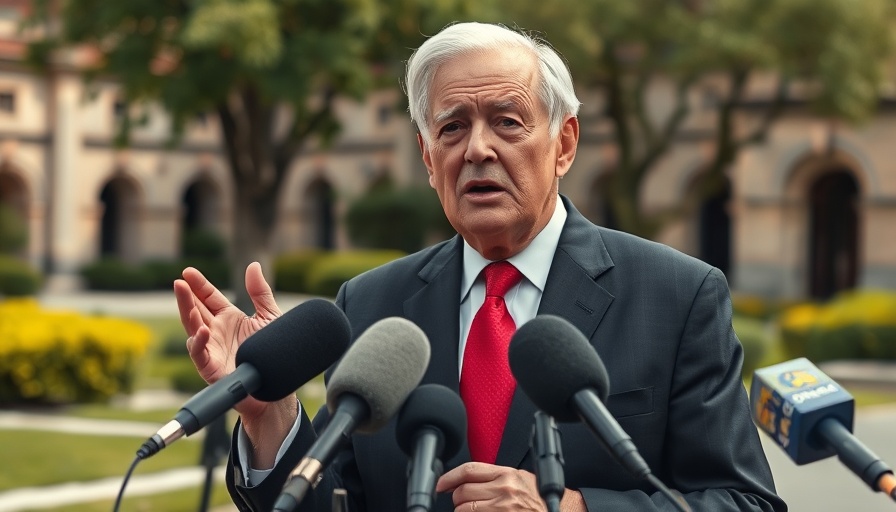
Ukraine Voices Alarm: Distrust and New Offensives Loom
As geopolitical tensions rise, Ukraine finds itself sidelined from pivotal negotiations between President Donald Trump and Russian President Vladimir Putin, set to take place in Alaska. These talks are aimed at potentially ending the ongoing war in Ukraine, yet President Volodymyr Zelenskyy has voiced strong concerns regarding Russia's intentions.
Zelenskyy stated on Monday that Ukraine's intelligence reports indicate Russia's military is positioning itself for new offensives rather than seeking peace. He emphatically warned, "There is not a single sign that the Russians have been told to prepare for a post-war situation." This statement signals a grim outlook, emphasizing that no genuine cessation of hostilities is imminent.
The Uninvited Guest: Ukraine's Exclusion from Key Talks
The absence of both Zelenskyy and European officials from the Trump-Putin discussions raises critical questions about the future of Ukraine and its territorial integrity. Ukraine has adamantly maintained that any agreement affecting its future should not proceed without its presence—fearing that concessions could be made regarding Russian-occupied territories.
U.S. officials are reportedly considering inviting Zelenskyy to the talks at the urging of European leaders, who have expressed strong support for Ukraine’s inclusion. The diplomatic maneuvering highlights the precarious nature of Ukraine’s situation and the global community's response to Russia's aggressive strategy.
Security Implications for Taxpayers: Understanding the Stakes
The ongoing conflict in Ukraine not only impacts geopolitical dynamics but also has direct implications for taxpayers worldwide, particularly in the United States. As military assistance and diplomatic interventions are considered, taxpayers may need to ponder the economic consequences of foreign policy decisions. Balancing national security interests with fiscal responsibility becomes increasingly critical.
Taxpayers should remain informed about how international conflicts can affect domestic policy and fiscal planning. Understanding the complexities of such geopolitical issues is essential, especially as discussions around budget allocations come into play.
Action Items for Taxpayers
In light of the unfolding situation in Ukraine, taxpayers are encouraged to engage in strategic tax planning or seek professional advice to navigate potential changes that may arise in government budgeting priorities. Students of fiscal strategy can help lower taxes through deductions available for small business owners or savvy strategic tax deductions. Staying informed and proactive is key.
The time is ripe for taxpayers to bolster their understanding of not just local economic conditions but also international affairs that have the potential to impact their finances.
 Add Row
Add Row  Add
Add 




Write A Comment